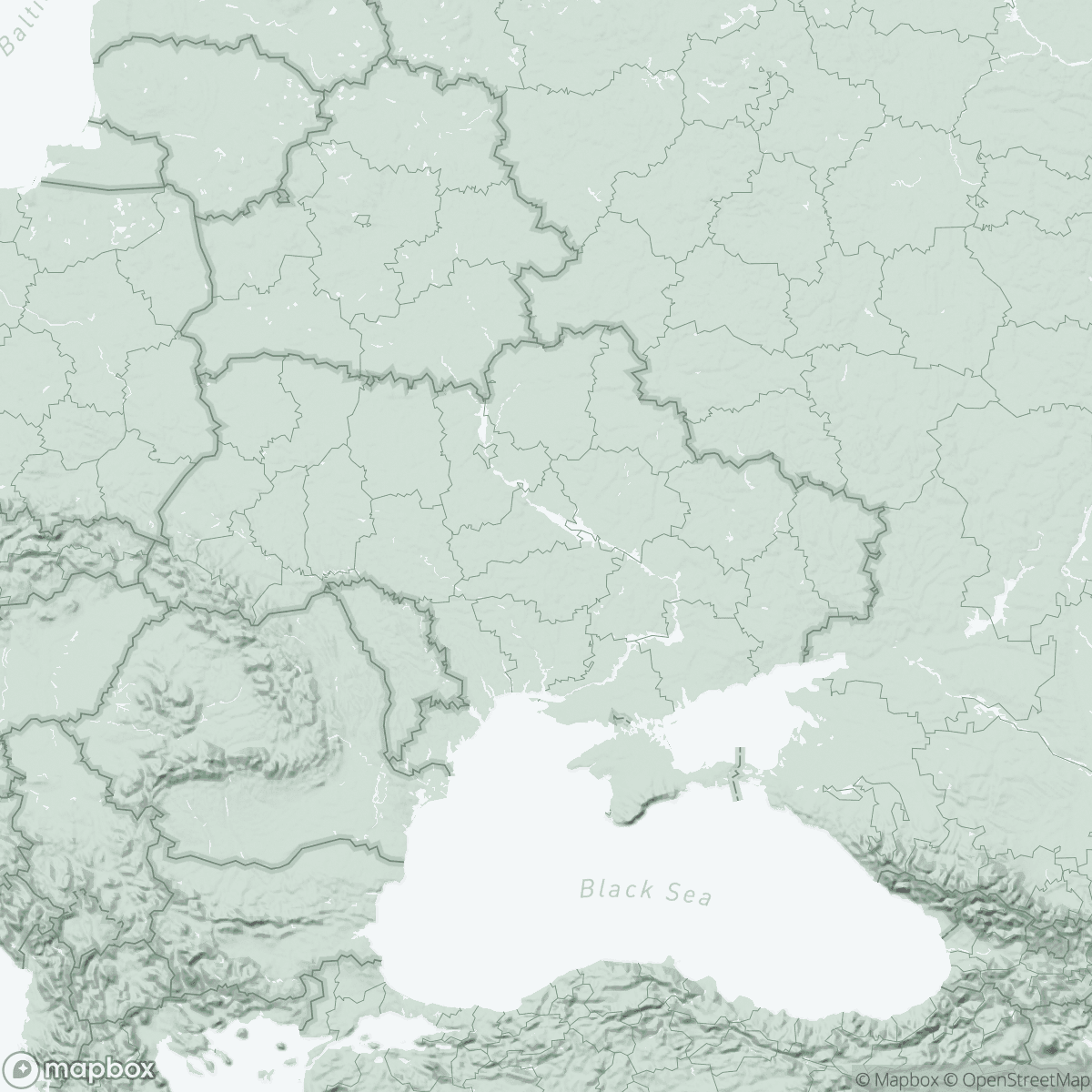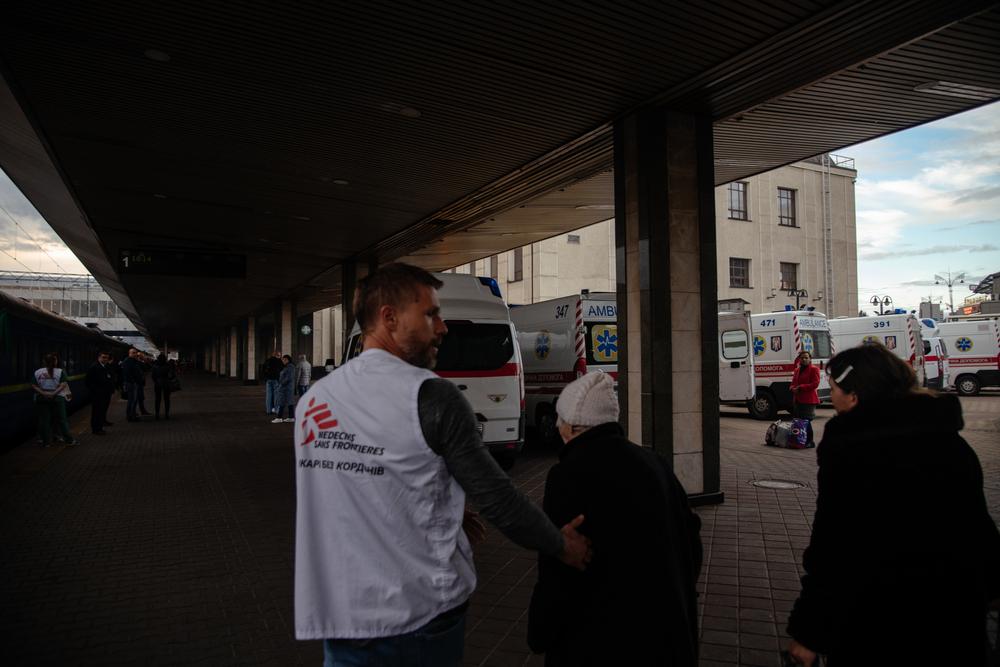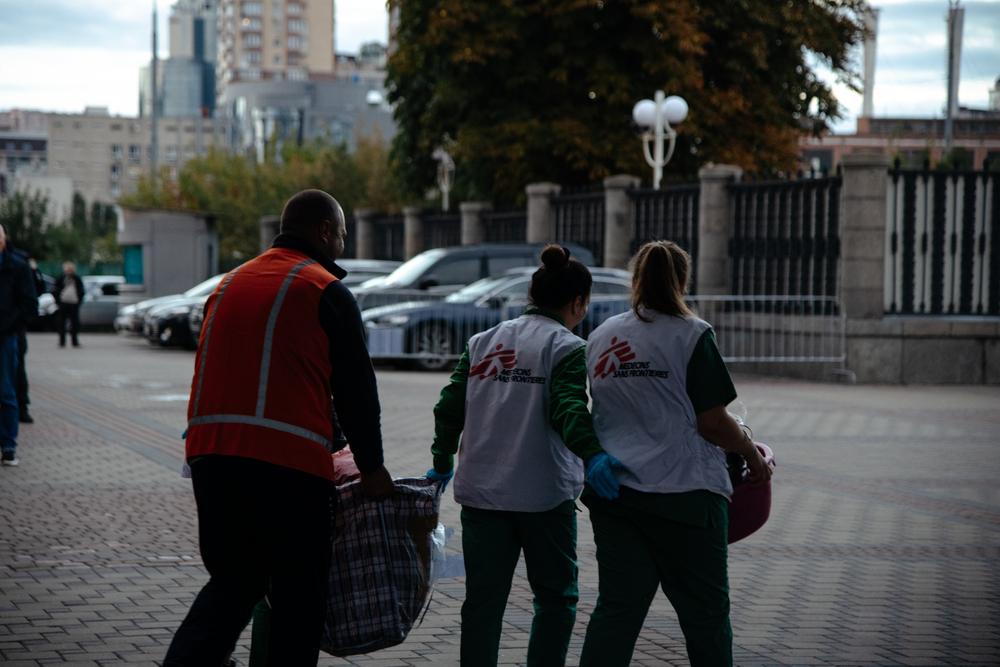
Patients with psychiatric and neurological conditions evacuated from overcrowded hospital in Kharkiv city
In 1 click, help us spread this information :
Healthcare facilities and care institutions on the frontlines in the east and southeast of Ukraine face serious challenges to continue to care for their patients. At times, many facilities have faced being cut off from water and electricity, trouble meeting basic needs such as food, difficultly accessing the medication their patients need, and extreme danger as fighting rages near their locations. Because of the fighting, vulnerable patients such as people with psychiatric and neurological conditions are very much at risk.
They looked like they had been malnourished for a long time."
MSF nurse Denys Babiy describes feeding patients on board the train, "I worked in a carriage where we had nine bedridden patients. When I fed them, they asked for two dishes. People were hungry, we could see their bones and ribs. They looked like they had been malnourished for a long time. It was hard to see."
In early September, over 600 patients had been in a facility right on the frontline in Kharkiv oblast. An evacuation process was underway when reportedly the facility was shelled, killing four medical staff and two patients. Later the patients were transferred to a hospital in Kharkiv city, increasing the number of patients in the hospital from 400 to over 1,000.
“After receiving so many patients, despite the best efforts of the staff the conditions in the hospital became really difficult. They didn't have enough beds, medication or staff to take care of everyone,” explains MSF doctor Borys Potapov, who accompanied the patients from Kharkiv to Kyiv.
MSF was asked by the Ministry of Health to help ease the pressure on the hospital by transferring over 200 patients with neurological and psychiatric conditions to facilities in Kyiv. The Ministry of Health selected which patients were to be transferred and informed MSF of their medical conditions. MSF donated hygiene items such as soap, shampoo and toiletries to the hospital before arranging the evacuation. Buses and a Ministry of Health ambulance transported the patients to the Kharkiv train station where they boarded the MSF medical train. The first train departed on 23 September, with regular MSF medical staff supported by nurses and a psychiatrist from the Ministry of Health to assist the patients during the journey.
“We made two trips in 36 hours, transporting patients with a range of pathologies. Some were elderly people with neurological diseases such as Parkinson’s or Alzheimer’s. We also had a lot of patients with acute psychotic disorders, especially today on the final journey,” said MSF project coordinator Emilie Fourrey, speaking from the train platform in Kyiv.
“Some of the patients were understandably quite agitated but it went smoothly during the journey to Kyiv. The patients will be transferred to two different facilities here, where MSF will follow up to check on their condition.”
MSF operates an ambulance referral service from 11 hospitals near the frontlines in the east and southeast of Ukraine. In the first three weeks of September, 277 patients were transferred to facilities slightly further from the fighting. The vast majority of these patients had suffered violent trauma and were able to receive a good standard of care. However, as the experience of the patients with psychiatric and neurological disorders shows, being transferred from hospitals right on frontlines is no guarantee of receiving adequate healthcare if the hospitals that receive them are overcrowded as a result of the war, with the problem exacerbated if patients have complex, chronic health needs. Evacuating patients to hospitals in the west of the country far away from frontlines can alleviate pressure on healthcare facilities.
On 27 September, MSF visited some of the evacuated patients in a psychiatric hospital in Kyiv Oblast. A Ministry of Health worker explained that some patients had thanked them, grateful to be in an environment far better than when in the hospital on the frontlines. Despite these improvements, the patients still have significant health needs, with one nurse remarking that, in their many years of caring for patients in psychiatric facilities, they had never seen patients in such poor mental and physical condition.




